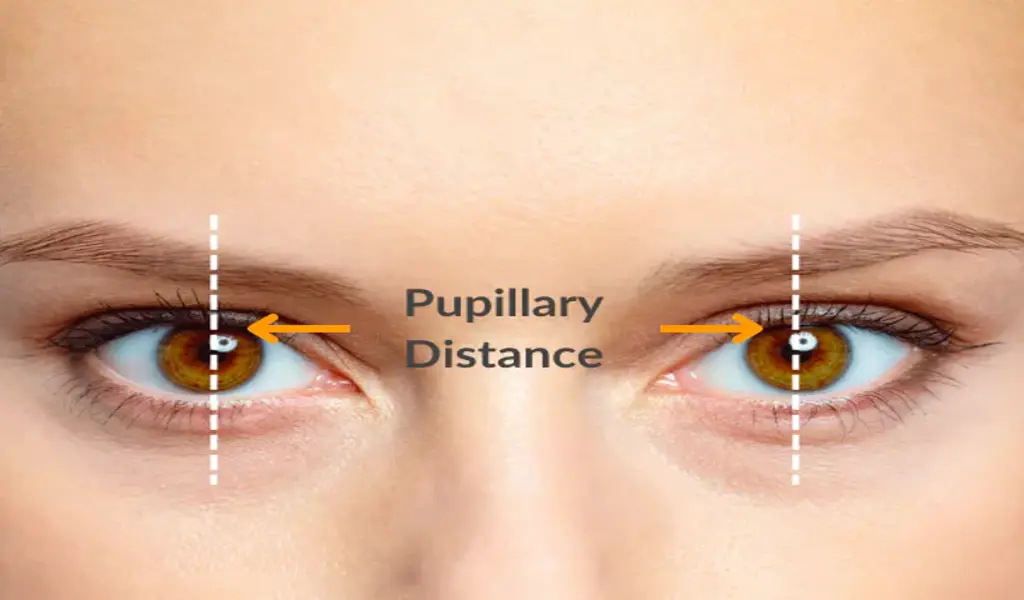Learning
Understanding The Importance of Knowing Your Pupillary Distance

Your eyes are one of the most important organs in your body. They allow you to see the world around you and are critical to your overall health and well-being.
Therefore, it’s important to take good care of them, especially when it comes to buying glasses or contact lenses.
One of the most important measurements you need to know to ensure a proper fit is your pupillary distance (PD).
In this article, we’ll explore the importance of knowing your pupillary distance and how it affects your vision and overall eye health.
What is Pupillary Distance?
Pupillary distance is the measurement of the distance between the centers of your pupils. It is measured in millimeters.
This measurement is essential for ensuring that your lenses are properly aligned with your eyes, allowing you to see clearly and comfortably.
It is a crucial measurement that is necessary to determine the correct placement for your contact lenses or glasses.
How is Pupillary Distance Measured?
Your pupillary distance can be measured by an optometrist or ophthalmologist during an eye exam. However, you can also measure it yourself at home using a ruler and a mirror.
Simply look straight ahead into the mirror and hold the ruler against your brow line. Close your right eye and align the ruler’s zero mark with the center of your left pupil.
Then, close your left eye and open your right eye. The measurement from the zero mark to the center of your right pupil is your pupillary distance. It is important to note that self-measurement may not be as accurate as a professional measurement.
Why is Knowing Your Pupillary Distance Important?
Knowing your pupillary distance is crucial for ensuring that your glasses or contact lenses are correctly centered on your eyes. The correct alignment of your lenses is essential for clear and comfortable vision.
If your lenses are not properly aligned, it can cause eye strain, headaches, and distorted vision. Wearing improperly placed lenses can also lead to long-term issues, such as amblyopia (lazy eye) or strabismus (crossed eyes).
How Does Pupillary Distance Affect Your Vision?
Your pupillary distance affects how you see through your lenses. If your lenses are too close together or too far apart, it can cause distortion, blurriness, or double vision.
This can be especially problematic if you have a high prescription, as the greater the distance between your pupils, the more likely you are to experience visual distortions.
Therefore, it is important to ensure that your pupillary distance is accurate to avoid any discomfort or vision problems.
How Does Pupillary Distance Affect Your Eye Health?
Wearing glasses or contact lenses with an incorrect pupillary distance can cause eye strain and headaches, which can lead to discomfort, fatigue, and even neck and shoulder pain.
Over time, this can cause permanent damage to your eyes, such as dryness, redness, and even vision loss. Therefore, it is important to ensure that your lenses are properly aligned to avoid any long-term eye health problems.
What Happens if You Don’t Know Your Pupillary Distance?
If you don’t know your pupillary distance, you may end up with glasses or contact lenses that are not properly aligned with your eyes. This can cause a variety of issues, including blurred vision, headaches, and eye strain.
Additionally, it can lead to long-term problems, such as amblyopia or strabismus. Therefore, it is important to know your pupillary distance to avoid any discomfort, vision problems, or long-term eye health issues.
How Can You Ensure Your Pupillary Distance is Accurate?
The best way to ensure that your pupillary distance is accurate is to have it measured by a professional during an eye exam. An optometrist or ophthalmologist has the necessary equipment and expertise to accurately measure your pupillary distance.
If you are unable to have your pupillary distance measured by a professional, you can also measure it yourself at home using the method mentioned earlier. However, self-measurement may not be as accurate as a professional measurement.
The Importance of Regular Eye Exams
Regular eye exams are an essential part of maintaining your vision and overall eye health. During an eye exam, your optometrist or ophthalmologist will measure your pupillary distance as well as check for any other issues that may affect your vision or eye health.
They can also provide you with recommendations for glasses or contact lenses that are best suited for your specific needs.
In addition to measuring your pupillary distance, regular eye exams can also help detect and prevent other eye problems such as cataracts, glaucoma, and macular degeneration. These conditions often have no symptoms in their early stages, making regular eye exams even more important.
Related CTN News:
How To Reset Samsung TV: A Step-by-Step Guide
10 Daily Writing Habits To Boost Your Productivity
How To Insert GIFs In A Google Slides Presentation?





























